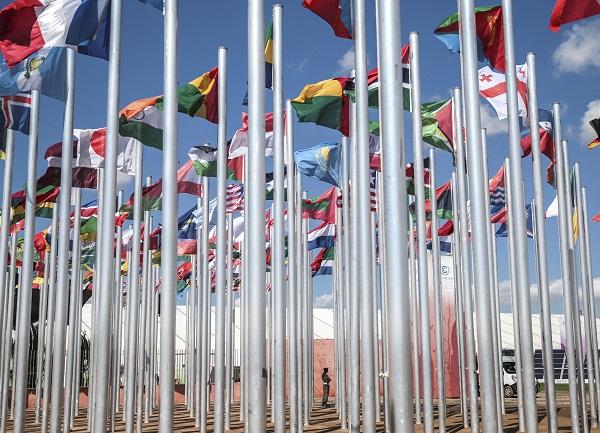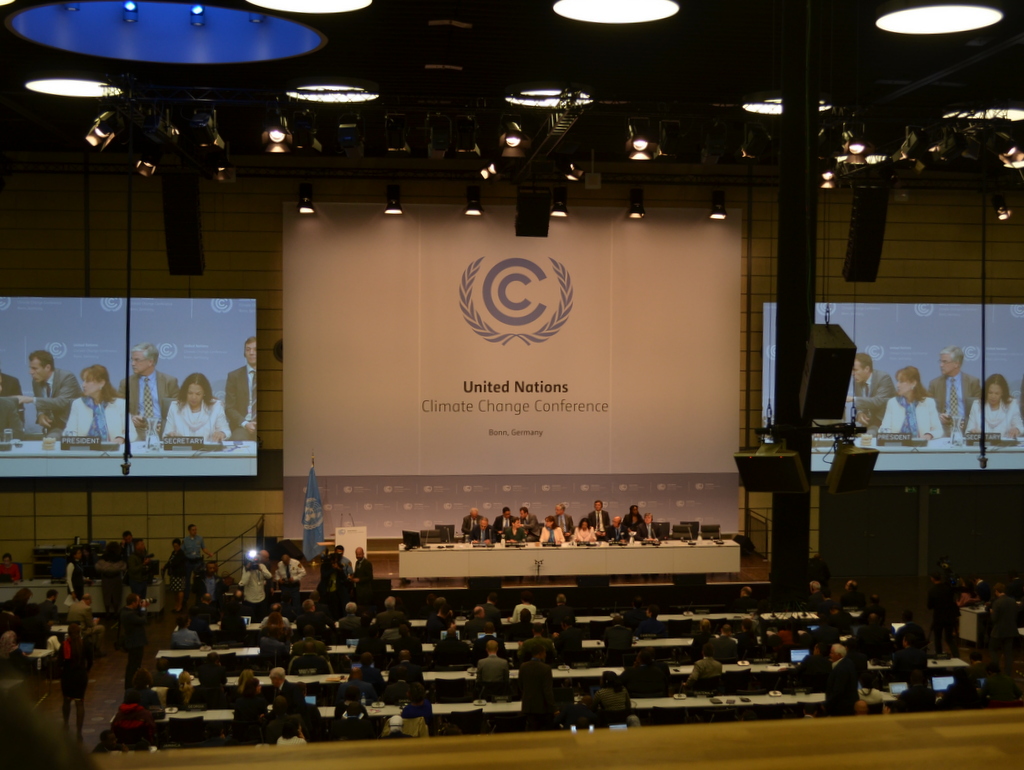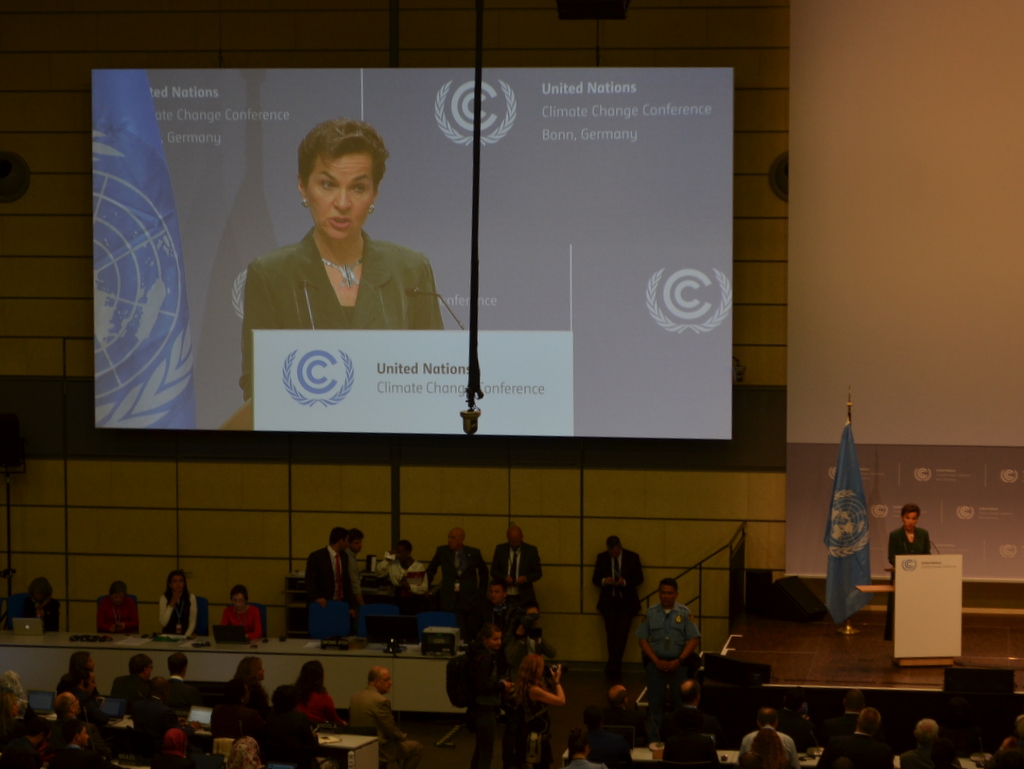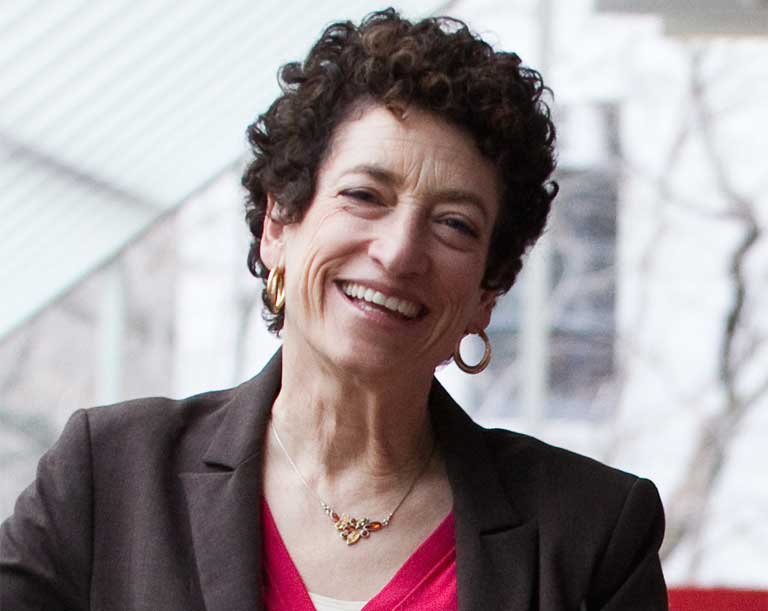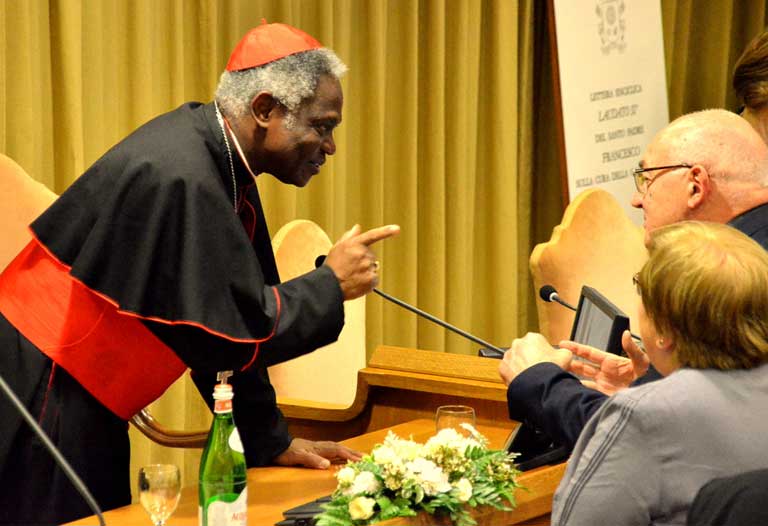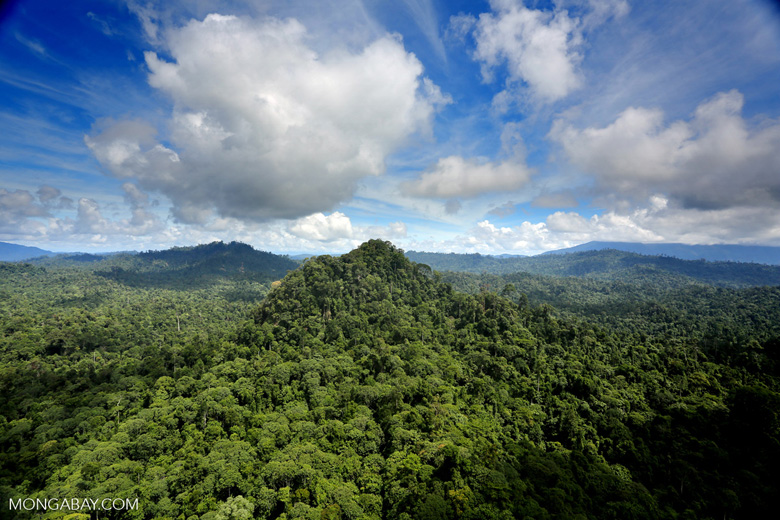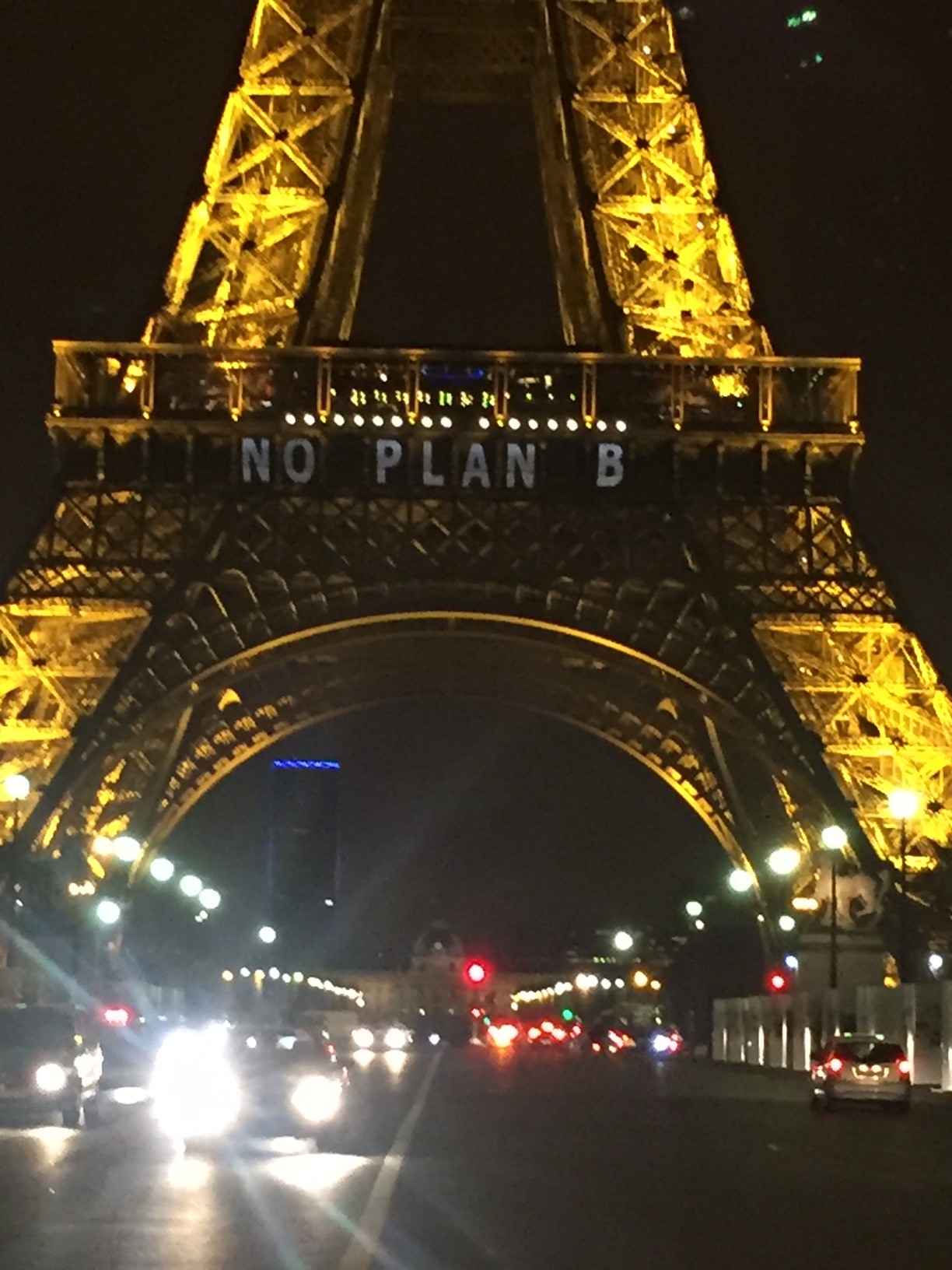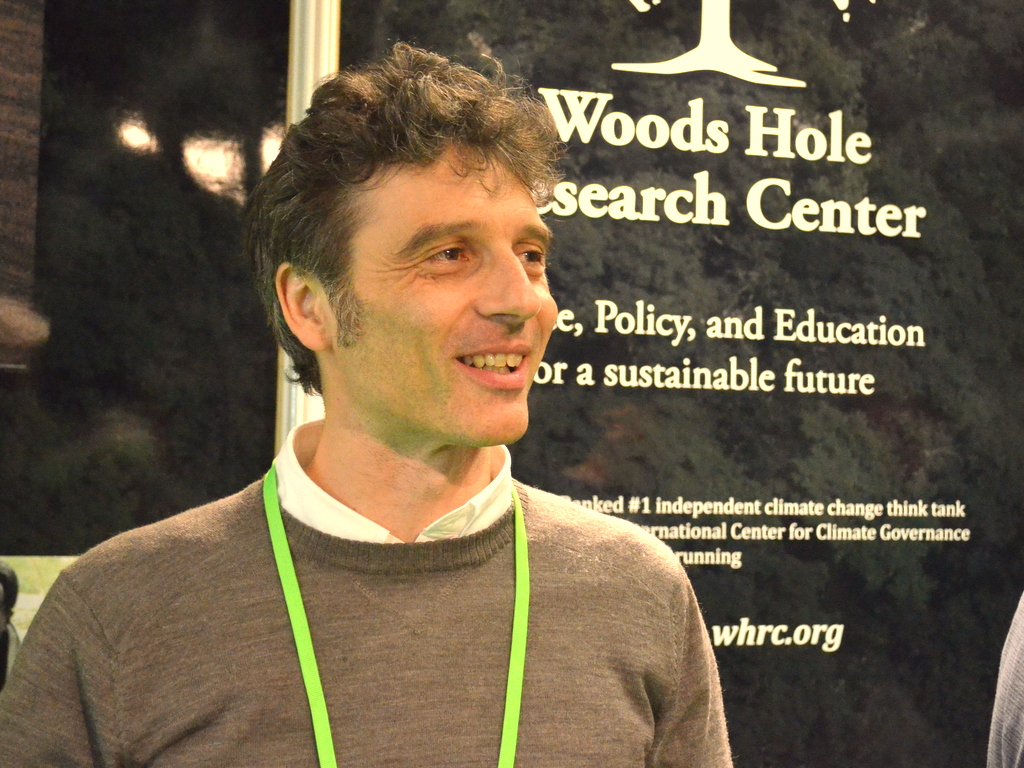I arrive on Nov. 11, 2016 to cover my third consecutive UN Climate Summit, COP22, this one in Marrakesh, Morocco. Today, Nov. 8, 2016 — Election Day in the U.S. — I was interviewed on WUNC’s The State of Things of the significance of this summit and what’s at stake. The recording of my conversation with host Frank Stasio is here. Thanks to Anita Rao for her excellent preparation and production.
Tag Archives: global warming
Mongabay @COP22: Beyond Paris — COP22 in Marrakesh, a critical nuts-and-bolts carbon-cutting summit
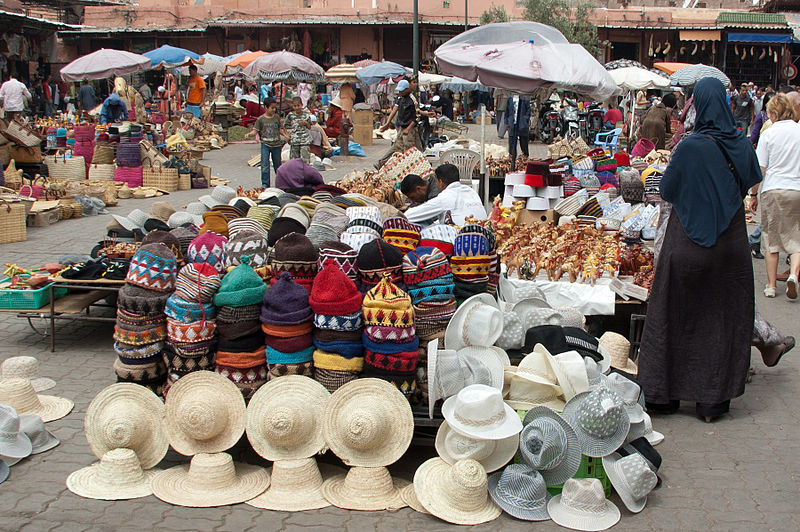
An open-air market in Marrakesh, Morocco. The city is hosting November’s COP22 Climate Conference and decisions made there could shape its future. If the rising heat brought by global warming isn’t abated, then parts of North Africa could become inhabitable by mid-century, according to a 2016 study. Feliciano Guimarães licensed under the Creative Commons Attribution 2.0 Generic license.
In preparing to cover my third consecutive United Nation’s Climate Summit — COP22 in Marrakesh, Morocco — I was able to call on a variety of new sources I made when in Bonn, Germany, at the mid-year summit last May. Among some officials, there is a tendency to let Marrakesh be something of a breather after the historic achievement at COP21 in Paris. The Paris Agreement, ratified with unprecedented haste, was the first time after 20 years of failure that 195 nations agreed to each do something about reducing their carbon footprint.
But Paris is simply a blue print. So much hard work remains. And we’ve already lost two decades to political inertia and denial. Thus, we have no time to waste. COP22 must exceeds expectations and begin delivering on the promise established in Paris. My story here explains why.
Mongabay: Peru’s new environmental policies: What are they and will they work?
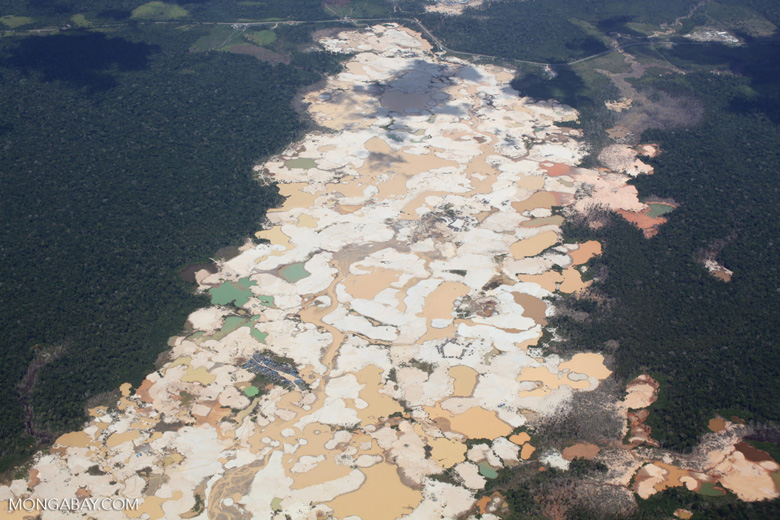
The reality of illegal gold mining: total environmental devastation in the Peruvian Amazon. Photo by Rhett Butler of Mongabay.com
In the waning days of President Ollanta Humala’s administration in July 2016, Peru’s National Congress approved a set of innovative climate change-related policies designed to reduce deforestation, protect watersheds and biodiversity, and provide the tools needed to leverage international investment through UN programs such as REDD+ and the Green Climate Fund.
But a new administration has taken over and lawlessness is often the rule in the Amazon basin. My story for Mongabay.com looks at the new policies and the challenges for implementation. First time with with Mongabay editor Morgan Erickson-Davis, who did a great job with my story.
Mongabay: Climate negotiators focus on carbon credits, underplay human rights
My second and final story from my four days covering the UN Midyear Climate Conference in Bonn, Germany, in mi-May 2016 focused on a policy recommendation on human rights and Third World development proposed by my Wake Forest colleague John Knox, the UN Special Rappatour on Human Right and Climate Change. The link to the story is here.
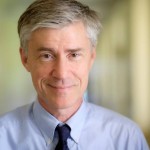 John’s proposal sounds so sensible, I write, “That is until you realize that CDM projects were established by the Kyoto Protocol as a way for wealthy industrialized countries to earn carbon-emission credits against their pollution caps by investing in clean energy or efficient energy projects in developing countries. Millions if not billions of dollars are at stake in CDM projects financed by the World Bank. It’s not hard to imagine how these complex international business transactions might be slowed or even undermined by adding local human rights requirements into the future project mix.”
John’s proposal sounds so sensible, I write, “That is until you realize that CDM projects were established by the Kyoto Protocol as a way for wealthy industrialized countries to earn carbon-emission credits against their pollution caps by investing in clean energy or efficient energy projects in developing countries. Millions if not billions of dollars are at stake in CDM projects financed by the World Bank. It’s not hard to imagine how these complex international business transactions might be slowed or even undermined by adding local human rights requirements into the future project mix.”
Patience runs thin at UN mid year climate conference in Bonn, Germany
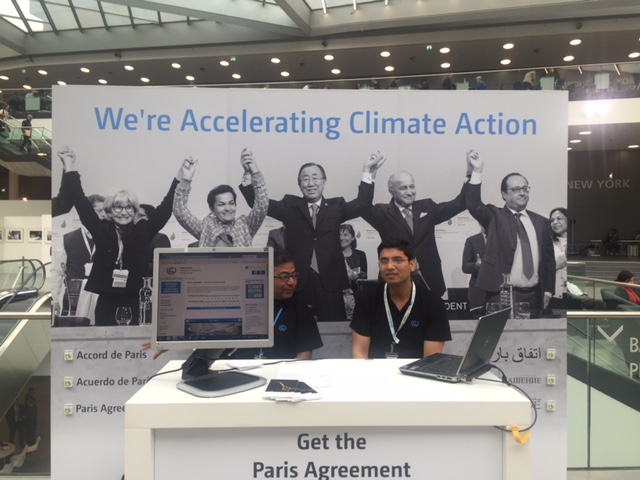
Top officials celebrate after the Paris Agreement was signed in December. But critics see no acceleration.
Acceleration? It depends on who you ask. That’s why the irony of this celebratory photo, taken immediately after the Paris Agreement was approved by 196 nations in mid-December, is so apparent here in Bonn, Germany, at the United Nations annual mid year climate conference.
On Monday, May 16, Christiana Figueres, executive secretary of the UN Framework Convention on Climate Change (UNFCCC), proclaimed the Paris Agreement as “a historic achievement.”
“Today marks a new era for all of us,” she declared with great hope and enthusiasm to a plenary of national leaders. “With the support of thousands of non-Party stakeholders, you were able to make the seemingly impossible possible. You have brought down the many barriers that divided you. You have opened many opportunities that now unite you.”
It sounds good. In many ways, it is good. Never before had virtually every nation on earth pledged to set voluntary goals to reduce their carbon emissions. They pledged also to fight deforestation and promote reforestation in vitally important tropical countries. Most critically, they pledged to hold the rise of global temperatures by 2100 to another 0.5-degree C, instead of a full 1-degree C.
The Paris Agreement got the world drunk on hope. But the buzz has worn off here in Bonn. Impatient activists and NGOs, particularly from poor, vulnerable nations now suffering the ravages of global warming, deride the lack of progress since Paris among the world’s most powerful nations and largest carbon polluters — China, the U.S., India, Russia, Japan and the EU.
They are rightfully impatient. They have already waited too long. Paris was COP21 (Conference of the Parties). Simply put, that means the first 20 UN climate summits ended in failure. Two decades of possible progress were lost to climate denial and political skittishness.
Thus, the claim in the top photo — We’re Accelerating Climate Action — looks like a lie to the critics here as it greets them each morning upon arriving at this modern conference facility made of glass and steel.
“Immediately after the UK signed the Paris Agreement, officials returned home and approved $3.3 billion in dirty energy subsidies for oil and gas companies,” said Asad Rehman with Friends of the Earth-UK. “Those subsidies should have been canceled given the Paris Agreement. We see a huge disconnect between what is said here (in Bonn) and what is happening here and at home.”
Rehman spoke at a May 18 press conference that assessed the Paris outcome and international action over the last five months. Impatience ran high among the panelists. So I posed a devil’s advocate-type question: “Global leaders in Paris agreed in December that the agreement did not go far enough. They all pledged to revise the strengthen the document in the months and years ahead. Don’t they deserve a little more time?”
“Our people are already dying,” retorted Lidy Nacil with the Asia Peoples Movement on Debt & Development, told me. “Fossil fuel projects should have been canceled right after Paris.”
Rehman added: “You must understand. It’s not just been five months. Governments have willingly failed to act for more than 20 years. The UN has called for carbon reductions in 1990. Since then, carbon emissions have increased globally by 60 percent.”
Celia Gautier with Reseau Action Climate of France said the recent French government’s ratification of the Paris Agreement “Is not not sufficient. There will not be a magic wand to 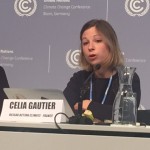 change climate action around the world that will keep temperatures around 1.5-degree C.
change climate action around the world that will keep temperatures around 1.5-degree C.
“Countries need to phase out fossil fuels now. The G8 must take the lead. But they are still reluctant to provide a road map on how the money will be raised to achieve of the goals of the agreement. Rhetoric needs to be matched with action. And we are not seeing it.”
Tamar Lawrence-Samuel, associate research director at Corporate Accountability International in Boston, said the U.S. managed to take credit as a stalwart hero of the Paris Agreement while continuing to send contradictory messages at home. No to Atlantic Ocean oil drilling and the XL Pipeline; yes to increased oil drilling in the Gulf of Mexico and the Arctic.
“The United States continues to pollute itself between a rock and a hard place,” she said.
In covering this grim and dire story of international climate change since 2013, I have tried to remain open to the possibilities that nations, states, cities, faith groups led by Pope Francis and other faith leaders, and innovators funded by Bill Gates and Elon Musk can and will bring about the change necessary to stave off the worst effects of climate change.
What choice do we have but to cling to hope?
Yet I am reminded every day in Bonn that optimism comes with a price and the expectation of uncompromising political will. And that despite the Paris Agreement being exactly what Christiana Figueres hailed — “a historic achievement ” — turning rhetoric into meaningful action remains a complex and daunting task.
The UN meeting here in Bonn runs through May 26.
My reporting in Bonn is being sponsored by funds provided by Wake Forest University, where I am a professor of journalism and director of the journalism program.
Mongabay: Naomi Oreskes on climate change: “We’ve blown it… but pessimism is not acceptable”
Naomi Oreskes, a Harvard professor of the history of science, and an outspoken champion of the climate science surrounding global warming, spoke at Wake Forest on Feb. 16, 2016, in a high-energy panel discussion moderated by MSNBC’s Melissa Harris Perry. When i told my Mongabay editor Glenn Scherer about the event, he recommended I interview Oreskes for an online Q&A. I did. With so many similar interests (tobacco industry malfeasance to climate change science), we had a long, intense discussion. The result is a very readable and insightful Q&A, linked here.
Excerpt regarding climate denial: It’s a cliché to say that knowledge is power. It’s not true actually. Knowledge is knowledge. In our society, knowledge resides in one place, and for the most part, power resides somewhere else. And that disconnect is really the crux of the challenge we face right now.
Mongabay: Top Vatican official: climate change action is a “moral imperative”
From my Mongabay.com interview with Cardinal Peter Turkson, who oversaw the writing of Laudato Si, and who may well succeed Francis as pope: “[A]t the time Pope Francis took over, the church had a lot of very serious challenges. It’s not that they’ve all gone away. Pedophilia [among priests] was at its raging height. Ok? And a whole lot of accusations and all of that. The church Pope Francis inherited had a lot of bruises. It’s not that the bruises are gone. But his own sense of leadership, simplicity, authenticity, credibility have helped to shove a whole of this bad stuff into the background.”
Thus, he said, climate change can take center stage. The full story is here. The Q&A comes from an hour-long interview I had with him exclusively at his Vatican reception room. I took the photo above months earlier during the press conference at the Vatican in mid-June when Laudato Si was released.
Mongabay: The Paris climate talks ended in elation — now the real work begins, say Faith leaders

Statue at the entrance to Le Bourget Airport near Paris, honoring Charles Lindbergh, the first to solo the Atlantic, and Frenchmen Charles Nungesser and François Coli, who attempted the crossing two weeks earlier and disappeared without a trace. Each day during the Paris climate change conference, participants passed by the statue — a tribute to the Lindbergh Moment, which resonated with many COP21 attendees. [Cutline by Glenn Scherer]
Glenn Scherer, my exemplary editor at mongabay.com sums up my “faith community’s moment” story this way: The story link is here.
- Catholic Pope Francis, with his climate change encyclical, and Islamic leaders with their Declaration on Climate Change, both helped to rally their billions of followers to set the stage for a successful Paris climate agreement.
- Now, the world over, Faith leaders are discussing and debating the best strategies and tactics for avoiding climate chaos, adapting to global warming, and protecting the world’s poorest and must vulnerable from continuing environmental degradation.
- “This is the moment the spirit is trying to work. We need to be there, in all corners of the world, to carry out the message as best we can. We believe in it. We believe in it!” — Sister Sheila Kinsey
Mongabay: COP21 agreement prominently addresses protection of earth’s forests
Here’s a link to my final story of COP21 in Paris, a story that literally fell into my lap and came together quickly shortly after the final draft of the Paris Agreement was released but before it was unanimously ratified. Rosalind Reeve, the main source, came into the Bloomberg/BNA office where I was working to rave about the forest inclusion for the first time. Dean Scott was only marginally interested. But I knew it was a mongabay.com story and she was only too happy to talk and talk. A few more sources later, and I had what I needed. Internet connections were so jammed I bolted back to my apartment in the city to write.
Mongabay: COP21 — New satellite imaging tracks REDD+ deforestation tree-by-tree
Here’s the summary of mongabay.com story on a significant advancement in making the policy REDD+ work as a tool between countries to keep critical tropical forests intact. Much credit goes to remote sensing scientist Alessandro Baccini at Woods Hole Research Center.
- Critics have long argued that the inability of satellites to track deforestation with precision created a loophole that could allow tropical countries to cheat regarding their annual deforestation rates.
- Past satellite imaging systems could not resolve objects smaller than 500 meters (1,640 feet) across. A new system developed by Alessandro Baccini and his Woods Hole, Massachusetts, research team can see objects just 30 meters (98 feet) across.
- Satellite imaging, combined with imaging from airplanes, along with ground-truthing will help make observation of tropical deforestation rates and carbon offsets far more precise in real time, preventing cheating and under reporting.

